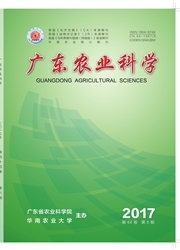

 中文摘要:
中文摘要:
农民专业合作社具有天然的益贫性,能促进农户脱贫增收。通过对四川省秦巴山贫困片区5市11个样本县的320名农户进行实地调研,根据贫困地区独有特征,构建农户参与意愿影响因素指标体系,采用二项Logistic回归模型,对贫困地区农户参与合作社意愿影响因素进行实证分析。结果表明:贫困地区农户参与合作社意愿不高,是否有非农或村干部经历、家庭务农人数、农产品商品化程度、对合作社盈利能力、发展前景认知有显著性正向影响,建档立卡贫困户相对非贫困户来说,参与意愿更不强烈。此外,地区之间农户参与意愿的影响因素也存在差异。基于以上研究,在如何引导贫困地区农户参与合作社、建立长效脱贫机制以及促进贫困地区合作社可持续发展等方面,提出相关对策建议。
 英文摘要:
英文摘要:
Farmer cooperatives can pro-poor instinctively,and they can bring benefit to farmers and therefore help promote poverty alleviation.On this basis,by interviewing 320 non-cooperative rural households in 11sample counties of Qinba mountain poverty-stricken areas of Sichuan province,this paper constructed an indicator system with the impact factors of rural households’willingness based on the special characteristics of povertystricken regions,and applying Logistic regression model,this paper empirically analyzed the impact factors of rural households’willingness to participate in cooperatives.Results indicated that,in poverty-stricken areas,rural households had weak willingness to participate in cooperatives.Whether having non-agricultural or village cadre experiences,the amount of family members engaging in agricultural activities and commercialization degree of agricultural products had significantly positive effects on the operating style and development recognition of cooperatives.Compared with non-poor households,registered poor households showed weaker willingness to cooperative participation.Additionally,inter-regional differences existed in the impact factors of participating willingness.At last,this paper put forword some policy implications to guide rural households in poverty-stricken areas to participate in cooperatives,including establishing a long-term mechanism of poverty,promoting the sustainable development of poverty-stricken areas cooperatives,etc.
 同期刊论文项目
同期刊论文项目
 同项目期刊论文
同项目期刊论文
 期刊信息
期刊信息
